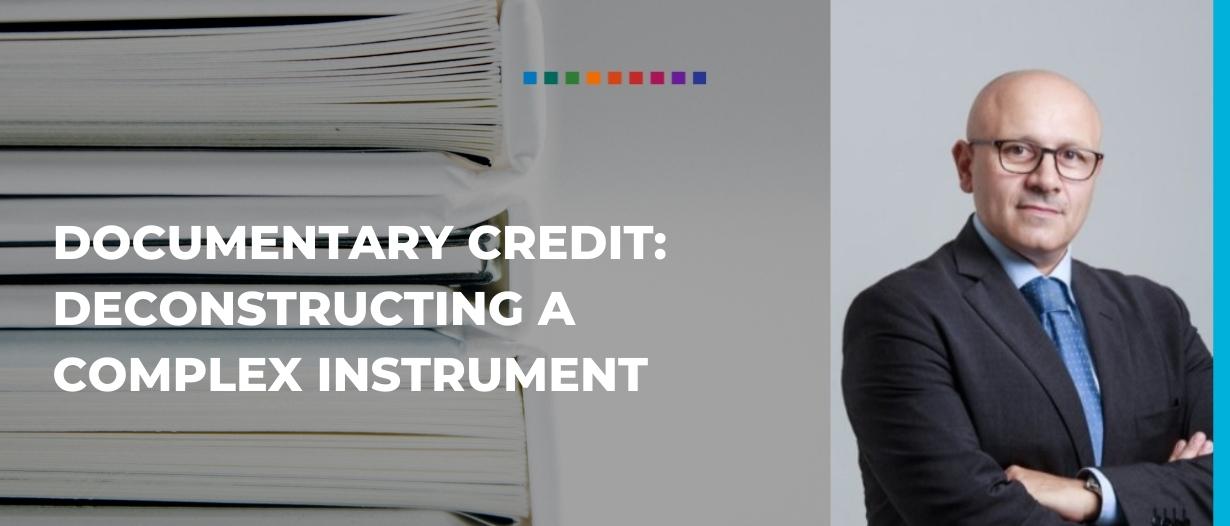When searching for a definition of documentary credit, the Uniform Customs and Practice for Documentary Credits (UCP 600) is the best place to start.
Article 2 of the UCP 600 states that “credit means any arrangement, however, named or described, that is irrevocable and thereby constitutes a definite undertaking of the issuing bank to honour a complying presentation.”
A detailed analysis
That definition can be overwhelming at first glance.
Breaking it down and examining each part individually will help us understand what exactly the definition means.
However named or described
Effectively, this means that the content of a document prevails over its title.
A document that bears all of the features of a documentary credit but is officially titled as something different, is still considered a documentary credit.
From a technical standpoint, however, the name “commercial letter of credit” is more accurate than “documentary credit.”
Irrevocable
According to the UCP 600, documentary credits are irrevocable meaning that credit cannot be revoked without the consent of the beneficiary.
Definite
A bank’s undertaking under a documentary credit must be precise, not vague or general.
Therefore, a documentary credit must:
- contain a value that can be determined,
- indicate the beneficiary to whom the promise to pay is made,
- state who is undertaking to honour or negotiate a complying presentation,
- state the documents required, and
- indicate the applicable expiry dates.
Issuing bank
The UCP 600 defines an issuing bank as “the bank that issues a credit at the request of an applicant or on its behalf” and defines an applicant as “the party on whose request the credit is issued.”
In this regard, a letter of credit can be issued by entities other than a bank, such as insurance companies, forfaiters, or corporates.
Indeed, according to some operators, the share of letters of credit issued by non-bank entities will increase considerably in the coming years.
To honour or negotiate
The definition of documentary credit refers to a definite commitment of the issuing bank “to honour a complying presentation.”
According to UCP 600 ICC: “honour means:
- To pay at sight if the credit is available by sight payment.
- To incur a deferred payment undertaking and pay at maturity if the credit is available by deferred payment.
- To accept a bill of exchange (“draft”) drawn by the beneficiary and pay at maturity if the credit is available by acceptance.”
Negotiation is defined as “the purchase by the nominated bank of drafts (drawn on a bank other than the nominated bank) and/or documents under a complying presentation, by advancing or agreeing to advance funds to the beneficiary on or before the banking day on which the reimbursement is due to the nominated bank.”
In general, an issuing bank can only honour a transaction, however, they may negotiate one in the context of a private agreement with the beneficiary.
This is because such a transaction is not governed by UCP 600.
Complying presentation
According to article 2 of UCP 600, the term complying presentation means a presentation that is in accordance with the terms and conditions of the credit, the applicable provisions of these rules, and international standard banking practice.
To obtain the expected services from the bank, the beneficiary of a documentary credit must prepare the documents required by the credit.
The requirements will follow a hierarchical order beginning with the credit conditions, the provisions envisaged by the UCP 600 ICC, and finally, the uniform international banking practice, which is partially codified in the ISBP 745 ICC.
Paper and electronic presentation
The core UCP 600 does not include electronic document submissions suggesting that presentations must be made in paper form.
However, to accommodate the presentation of electronic records, either alone or in combination with paper documents, the ICC issued a supplement to the UCP 600.
With this supplement, it is possible to present electronic records in combination with paper documents if the credit is governed by the eUCP 600.
Credits and contracts
According to article 4 of the UCP 600, a documentary credit is separate from the underlying contract that it originates.
Article 5 goes on to strengthen this indication by stating that the banks deal with documents and not with the goods, services, or performance to which the documents may relate.

Conclusion
A documentary credit can be a complex instrument.
Its complexity has also increased in recent years due to its high volume of use in international commercial transactions.
Only an accurate knowledge of the rules governing documentary credit can enable operators to create value in an international sale and purchase transaction.
























